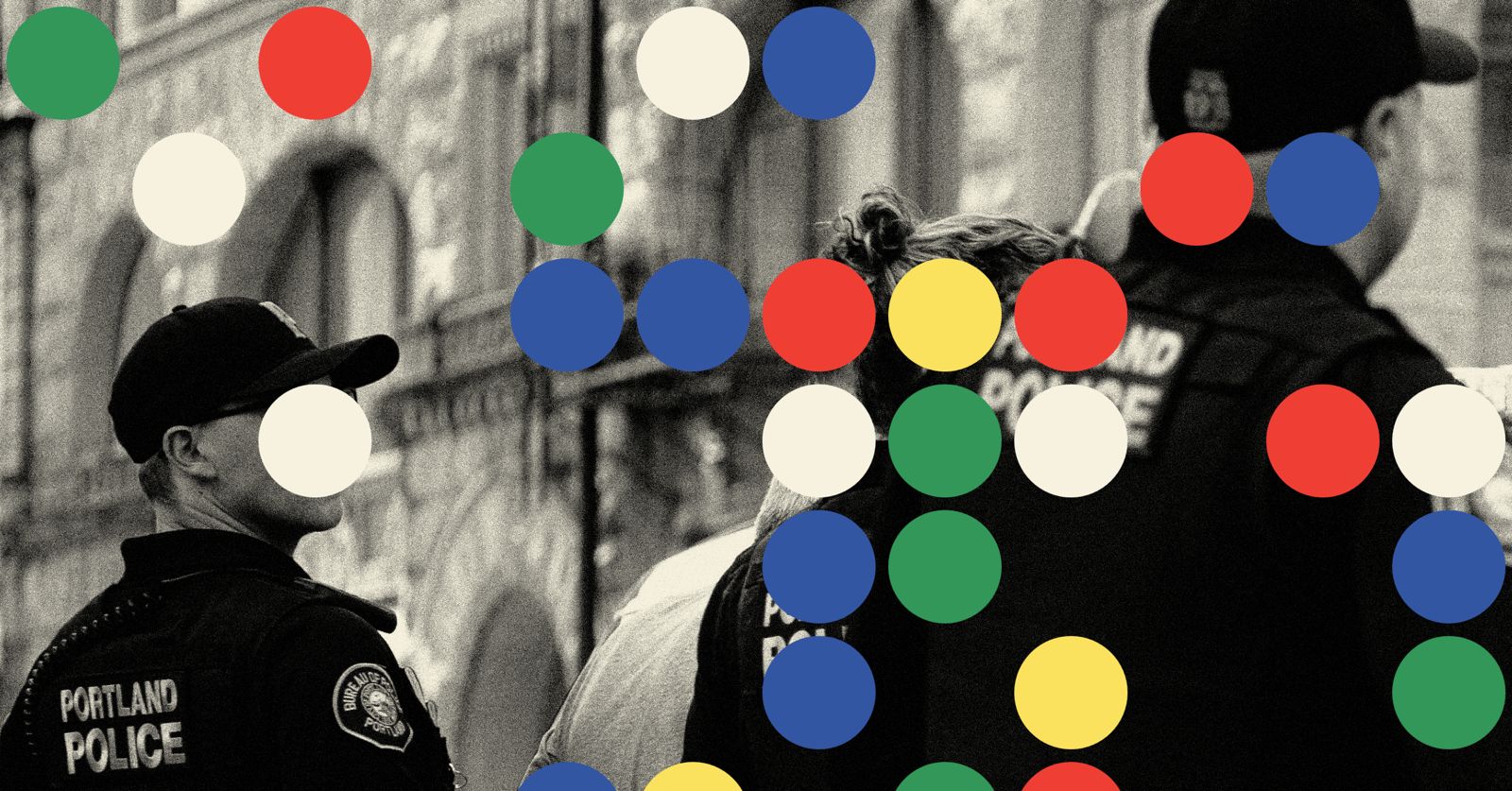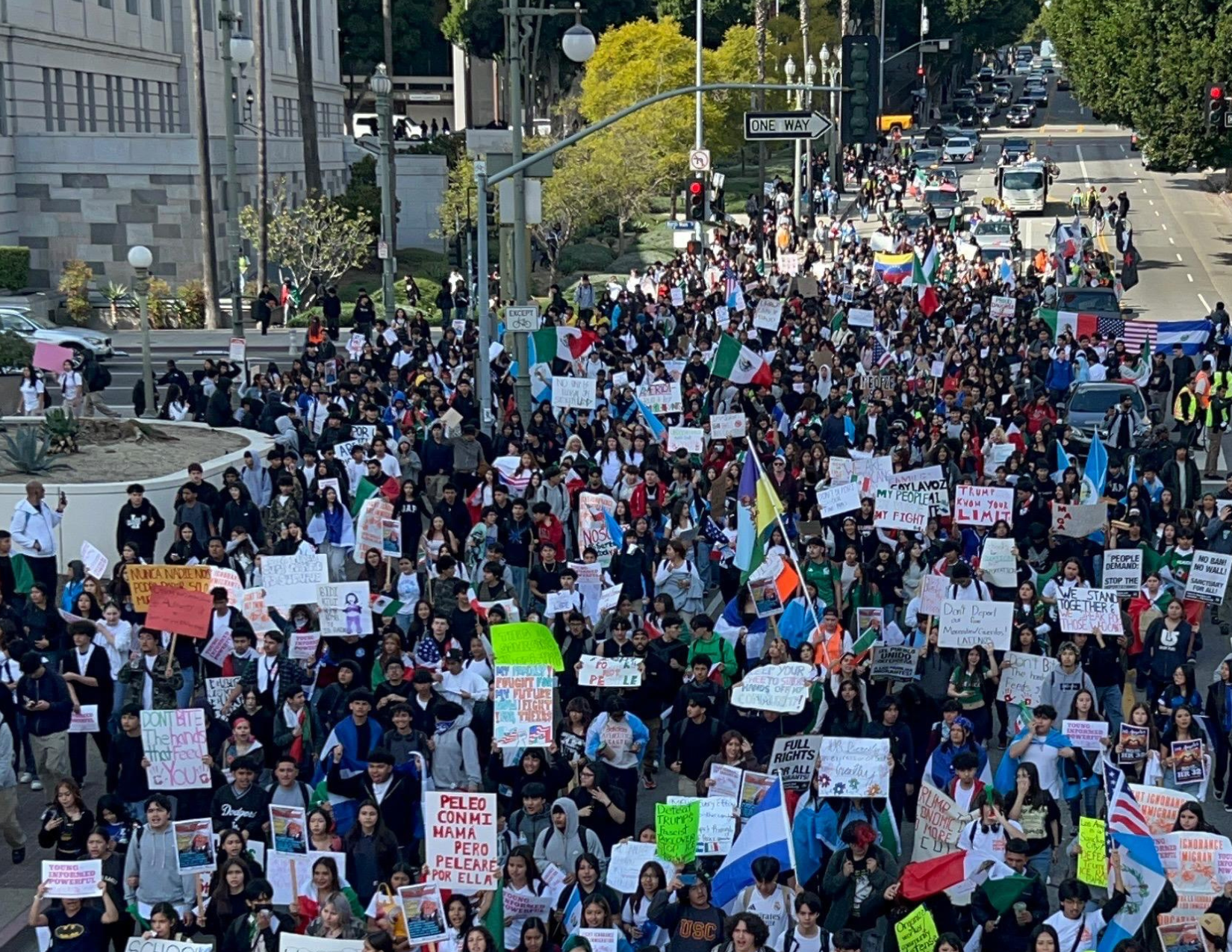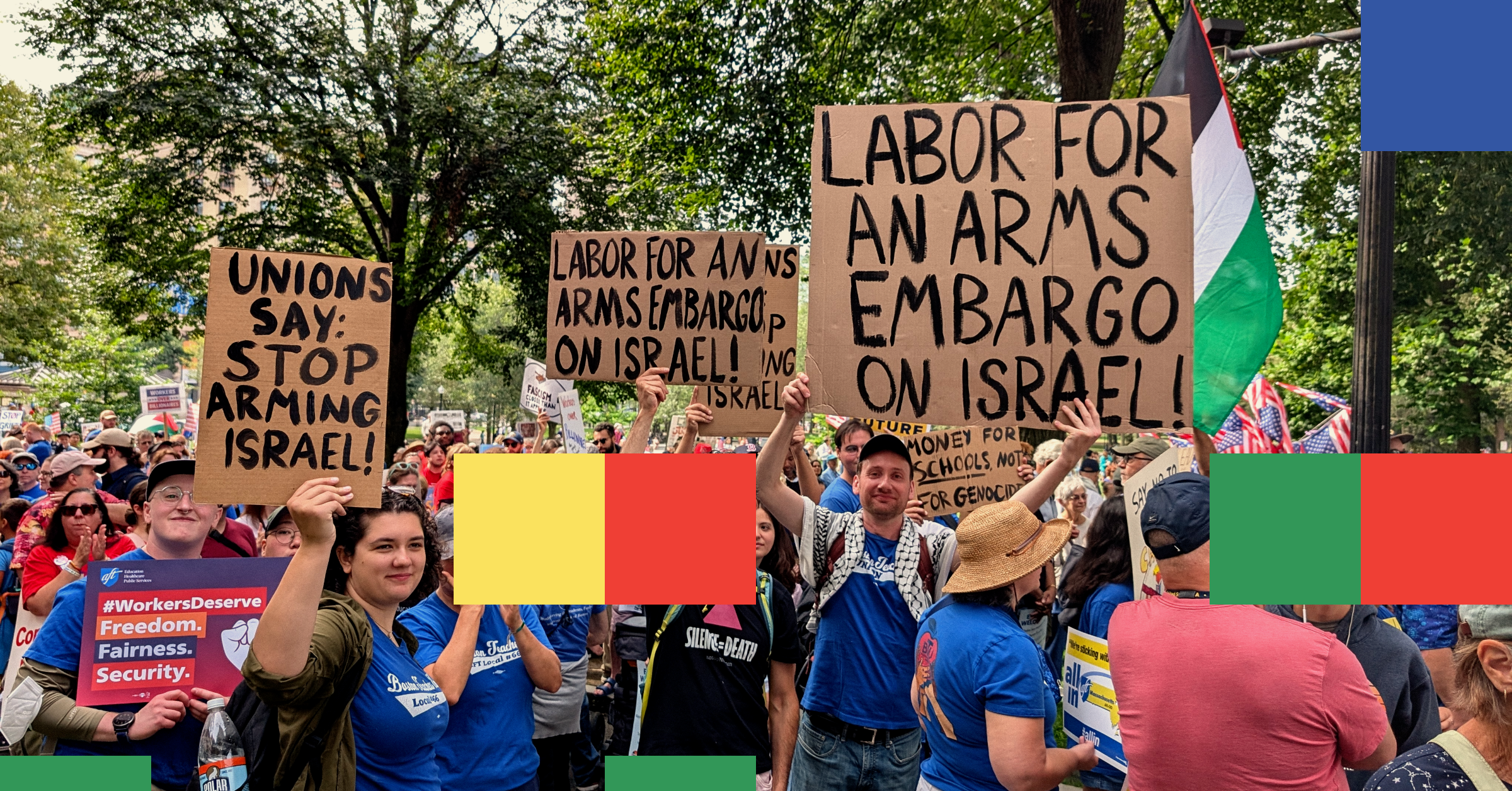For decades police unions have occupied a contradictory and often hostile space within the labor movement. While they bargain collectively, their fundamental role – enforcing state power, protecting property, and historically breaking strikes – puts them at odds with workers’ struggles. This inherent tension exploded in Portland over the past few months, as the leadership of the Northwest Oregon Labor Council (NOLC) attempted to quietly usher the controversial Portland Police Association into its ranks, only to be met with fierce, organized resistance from its own members and allies.
The Sneak Attack
In late February, NOLC Executive Secretary-Treasurer Laurie Wimmer submitted a letter to the Portland City Council opposing Resolution 2025-047, a measure aimed at strengthening the city’s new Community Police Oversight Board. Buried within the letter, written on official NOLC letterhead, was a bombshell: Wimmer referred to the Portland Police Association (PPA) as NOLC’s “newest affiliate.”
This was shocking and unwelcome news to many of the NOLC’s 104 affiliated unions. There had been no prior consultation, no discussion, and no vote among NOLC delegates, as required by the NOLC constitution. The executive board, led by Wimmer, proceeded to vote with “no opposition” on March 10 to admit the PPA, bypassing the council’s own bylaws. When questioned why there had been no vote, she claimed the executive council had deemed admitting the PPA “uncontroversial.”
Why the Secrecy? Why the Rush?
The backlash was immediate and fierce. Critics, including many within the labor movement, saw the move as a cynical ploy by the embattled PPA. Facing a new, more progressive City Council willing to scrutinize police budgets and demand accountability, and reeling from recent electoral setbacks for its favored candidates, the police union sought the perceived legitimacy and political cover of the labor movement.
“They’re stunned by the outcomes of the elections and the recognition that they don’t have the power they used to,” Nick Caleb, Area 1 Vice President of Communications Workers (CWA) Local 7901, told the Portland Mercury. The PPA hoped NOLC affiliation would help it fend off budget cuts and accountability measures by portraying the police union as just another group of city workers fighting for fair treatment.
NOLC leaders, pushing a “big tent” approach, argued that “all workers” deserve union representation. Wimmer claimed she had actively courted the PPA and insisted that the council already included other unions with some members in law enforcement, such as the Teamsters for locals of small town city police and AFSCME for Department of Corrections employees and district attorneys. Her argument ignored the unique history of police and police unions acting antagonistically toward worker movements and the awful reputation of the Portland Police Association specifically, whose members routinely use excessive force at protests and are under a federal consent decree for over 12 years for excessive use of force against people with mental illness.
The Rank and File Fights Back
Many rank-and-file unionists weren’t buying it. They mobilized quickly, pointing to the PPA’s long record of actions antithetical to labor solidarity. The backlash from NOLC affiliates was swift, unified, well-informed and grounded in experience. Unions mobilized not just against leaders’ lack of transparency but against the fundamental incompatibility of a police union with a movement to build worker solidarity.
The Portland Federation of School Professionals (PFSP) crystallized this opposition, condemning the PPA’s record of strike-breaking — notably during the 2021 Mondelez/Nabisco strike where police ordered workers to disperse from rail blockades, and the 2023 LIUNA 483 strike, where officers threatened arrests to weaken picket lines.
“Police, by definition and in practice, are used to protect property over people, especially during labor disputes,” declared Angela Bonilla, president of the Portland Association of Teachers (PAT). Communications Workers in media, tech, and nonprofits (CWA Local 7901) argued that NOLC leadership’s February letter weaponized “labor solidarity” to shield the PPA from accountability reforms. The union also spotlighted the PPA’s intimidation of progressive city councilors: uniformed officers, on the clock, some in PPA-branded gear, surveilled town halls of reformers Sameer Kanal and Angelita Morillo, a tactic echoing the union’s earlier smears against former City Commissioner Jo Ann Hardesty. When Morillo directly challenged PPA President Aaron Schmautz to commit to a Truth and Reconciliation process addressing systemic harm, his dismissive answer during public testimony — a “solid maybe” ___ confirmed the union’s refusal to confront its oppressive role and long history of harming the community.
Bottom-up organizing ignited a coordinated campaign that exposed the fragility of NOLC leadership’s backroom deal. On March 25 CWA Local 7901 voted unanimously to disaffiliate if the PPA joined. The School Professionals declared, “We cannot become a labor council that stands shoulder to shoulder with an organization that operates in direct opposition to the labor movement.” Portland DSA’s petition against affiliation garnered over 600 rank-and-file union member signatures.
The knockout blow came just days before the scheduled vote, when Bonilla — representing a union poised to join NOLC — declared that the Teachers would “not consider joining” if the PPA was admitted. This cascading resistance — from disaffiliation threats to the loss of a major potential member — forced NOLC leadership into full retreat. Wimmer announced the decision would go to a vote of all affiliate delegates at the next meeting.
Protest, Procedural Collapse, Postponement
The stage was set for a showdown at the NOLC meeting April 28. A rally was planned outside the Electrical Workers (IBEW) Hall, where the NOLC meeting was scheduled.
In a move critics saw as an attempt to stifle dissent and avoid the public protest, NOLC leaders abruptly canceled the in-person meeting, citing vague “security concerns,” and shifted the contentious vote to Zoom.
Once on Zoom, the crucial vote was abruptly removed from the agenda. Wimmer cited an undisclosed “procedural step” the executive board had overlooked during “eligibility determination work.” While not explicitly stated during the meeting, the context points to one glaring issue: the PPA is not a member of the AFL-CIO.
The AFL-CIO constitution appears clear: unions must be members of the national AFL-CIO in order to join local labor councils like the NOLC. The PPA does not belong to the AFL-CIO.The vote was postponed indefinitely and the item has mysteriously vanished from subsequent agendas. The momentum for affiliation appears fatally wounded.
A Victory for Worker Solidarity – For Now
Teachers, school staff, communications workers, postal workers, and socialist organizers stood up and declared that labor solidarity cannot include an institution whose core function has been to break strikes and protests, intimidate reformers, and protect the status quo of power and property over people.
Not only did the affiliation fail, but the timing of the attempt brought heavy scrutiny to the police union and was a factor in the Portland City Council’s re-directing $2 million in its budget process away from the police and to parks.
The fight for police accountability in Portland continues. But this victory serves as a potent reminder: when the left wing of labor organizes, it can catch labor bureaucrats used to easy continuation of the status quo off guard. We can hold labor institutions accountable to their membership, and defend the principle that solidarity must be rooted in justice for all workers. The “big tent” cannot include those tasked with repressing movements for social and economic justice.




